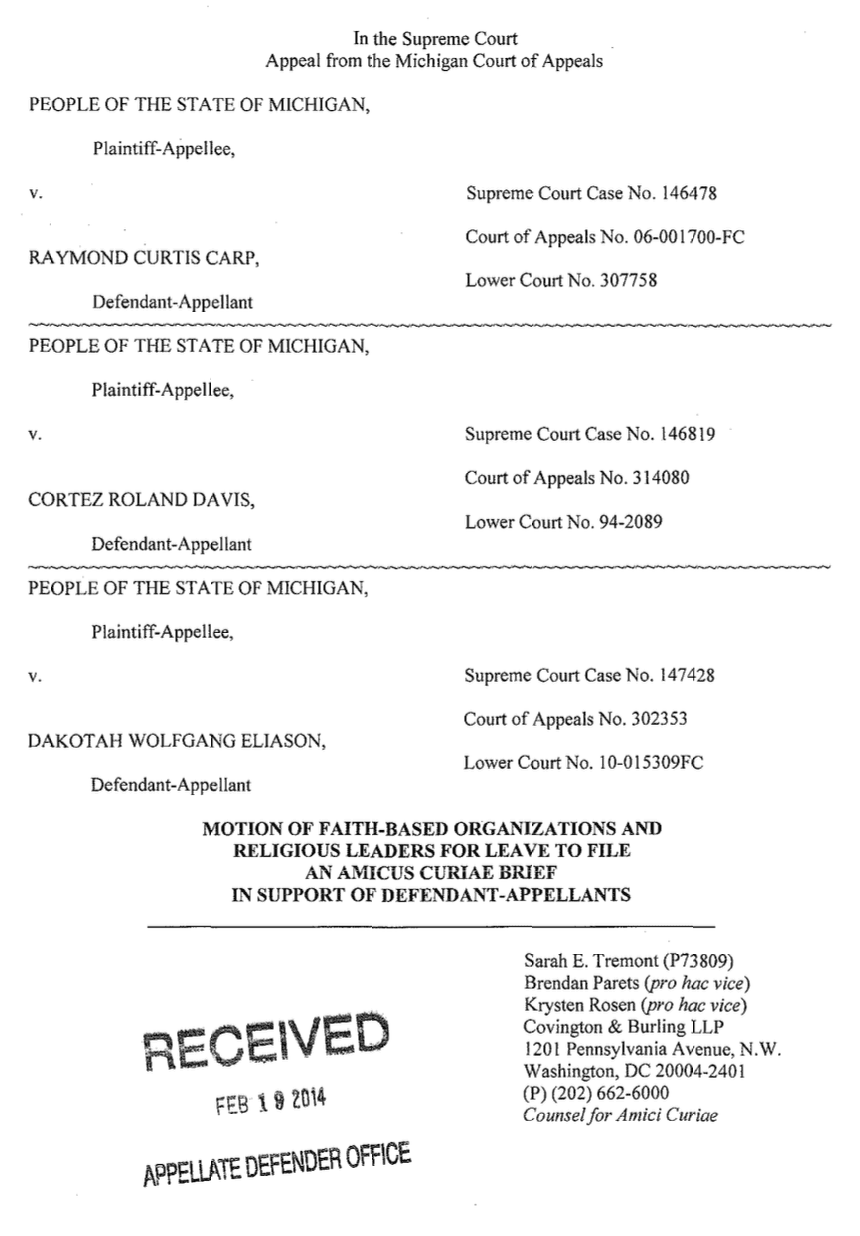
Summary of Argument
Amici curiae represent faith-based organizations comprised of members withdiverse backgrounds, traditions, and perspectives, as well as leaders of different religious denominations.2Despite their varied religious affiliations and traditions, amid share the common and firm belief that the United States Supreme Court's opinion in Miller v. Alabama,US_; 132 S Ct 2455; 183 L Ed 407 (2012), should be applied to the cases of Raymond Curtis Carp, Cortez Roland Davis, and Dakotah Wolfgang Eliason so that each receives an individualized sentencing that allows the court to consider fully the mitigating factors such asyouth and the capacity for rehabilitation.
In Miller v. Alabama, the Court held that "the Eighth Amendment forbids asentencing scheme that mandates life in prison without possibility of parole for juvenile offenders." 132 S Ct at 2469. In the decisions below, the Court of Appeals determined incorrectly that Miller does not apply retroactively to cases on collateral review or, in one case, that the only option for resentencing was life with or life without the possibility of parole.
Faith-based organizations and religious leaders offer unique insights into the application of the Eighth Amendment, which necessarily requires courts to scrutinize the morality of a punishment, either facially or as applied to certain circumstances. As the United States Supreme Court explained in Atkins v. Virginia, 536 US 304; 122 S Ct 2242; 153 L Ed 335(2002), the views of religious groups about the morality of a particular punishment can provide evidence of a "broad[} social and professional consensus, " id. at 316 n. 21; 2249 n. 21, concerning the moral and ethical treatment of people convicted of crimes. Accordingly, theundersigned faith-based organizations and religious leaders wish to show that, in addition to being supported by the United States Supreme Court's precedents, retroactive application of Miller to cases on collateral review is also the morally correct decision that complies with the ideals underlying the Eighth Amendment.